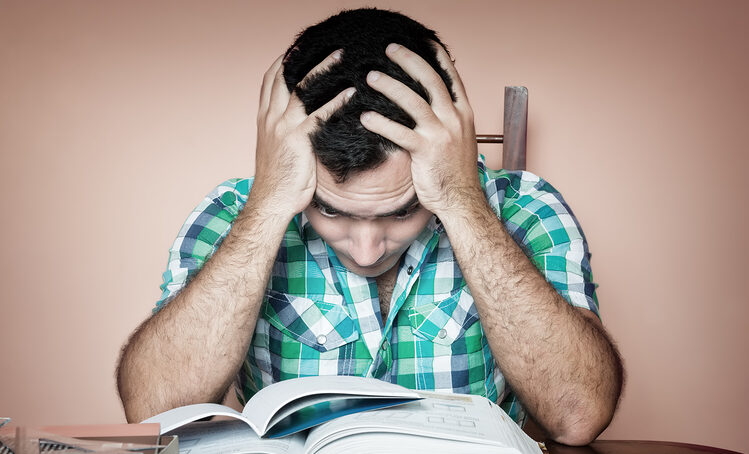
With recent discussions of a “Second-Wave” for the COVID-19 Pandemic, I think it is safe to say that everyone is getting a bit fed up with all of this pandemic talk. However, we at PNHC feel it is important to help patients by giving some strategies on how to cope with the stress.
What is Stress?
According to Webster’s Dictionary, Stress can be defined as, “a state of mental tension and worry caused by problems in your life, work, etc.; something that causes strong feelings of worry or anxiety; a physical force or pressure”. I think it goes without saying that all of us have experienced stress from the COVID-19 Pandemic. The pandemic is not what anyone expected or prepared for when they determined their plans for the year 2020. We have all had to adjust quickly, and its possible, that we still have not adjusted. Without optimal coping techniques, it can be difficult for many to manage comfortably through all of the chaos that our world is currently going through. We hope that this blog would offer some different ways to cope.
Ways to Cope with Stress at Home
Unfortunately, during these uncertain times, there is a lot outside of our control. We cannot control the state of affairs at any governmental level, and we cannot control for what others do or how they act. This is where I (Dr. Elisha Cook ND) would normally say to my patients that it is important that you focus on the things you can control – your thoughts, your actions, your behaviour, your attitude, and frankly where you put your hope. In addition to focusing on these areas, I also find it useful to use tools that remind you of what you actually can control for. No one answer provides a suitable option for everyone and their coping needs. As a result, I have provided examples below of healthy ways to cope with stress:
- Journaling – options might include focusing on gratitude, lessons that can be learned from difficult points in a day, or good and bad highlights from the day.
- Breathing – in particular deep breathing, though this may prove to be difficult for those with respiratory diseases.
- Exercise – exercise can act as a great way to release any excess tensions in a healthy and constructive way.
- Talking to others – sharing your more intimate thoughts and concerns with someone is helpful with working through stress. It is important to recognize that you are not alone and you have individuals who can help whether that is loved ones or health care providers. It is okay to open up to others about how you are feeling.
- Praying or Meditating – both of these have very similar outcomes and they help an individual to become grounded and refocus on what really matters.
- Take time for self care – Give yourself time for you and do something that brings you joy. This might include taking a bath, getting a massage, or getting lost in a book.
- Distraction through changing your scenary – changing the task you are doing, if applicable, can help you to redirect your focus from a problem, and might look like engaging in a favourate hobby.
- Pet Therapy – if you have a family pet at home, spend some time with them as this can help to reduce blood pressure and activate the parasympathetic nervous system.
- Adopt healthy sleep routines – having a routine around bed, adopting a consistent bed time, and engagine in relaxing activities prior to bed can help you sleep better and thereby cope better with stress.
The next time you are feeling stressed, and need to find a healthier way to cope with your stress, take the time to explore these options and find what works best for you.
What NOT To-Do To Cope with Stress
As foreshadowed, there are some coping mechanisms that are less than ideal when trying to cope with stress. Below I have provided a few examples of unhealthy coping mechanisms:
- Binge eating
- Drinking
- Avoidance
- Gambling excessively
- Smoking
- Using elicit drugs
- Isolating yourself from others who can help
Therapies that can help with stress
There are many different things that can be done to help someone to cope with stress. Many alternative medicine therapies can be beneficial for helping to promote the parasympathetic nervous system which is in charge of relaxing and resting. Some therapies that might be useful to help you to cope with stress depending on your specific case and needs include:
- Acupuncture
- Massage Therapy
- Counselling
- Nutraceutical Medicine
- Botanical Medicine
- Reflexology
Each individual is different, and so there is no one treatment that would be good for everyone. So, choose the treatment that is less intimidating and feels right for you.
Have you benefited from reading this blog? Know someone that would benefit as well? Share, Like, Comment, or Tweet this article, and let me know what you think.
Some of the information provided above may not be appropriate for everyone, please consult with your doctor before trying any of the above. If you are interested in any of the above therapies to help you work through stress and are wanting a different approach to your health care needs, contact the Plattsville Natural Health Clinic by calling 226-232-7665 and book your appointment today!
This article was written by Dr. Elisha Cook ND
